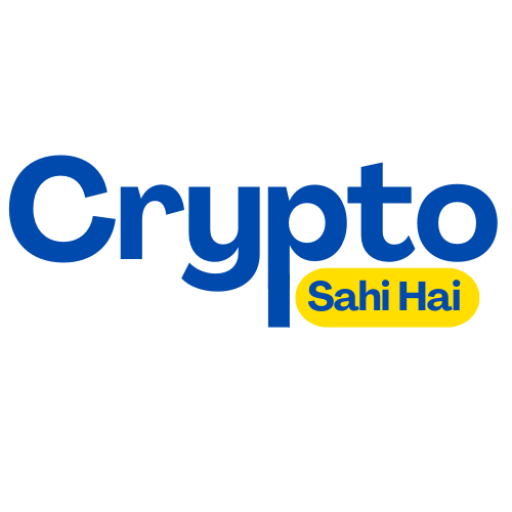Chainlink (LINK) is a decentralized oracle network that enables smart contracts on blockchains to securely connect with external data sources, APIs, and payment systems. It serves as a bridge between blockchain smart contracts and real-world data, allowing smart contracts to interact with real-world events, payments, and data feeds in a secure and verifiable way.
Key Features of Chainlink (LINK):
- Oracles:
• A blockchain is inherently isolated, meaning it cannot directly access real-world data, such as stock prices, weather reports, or other off-chain information. Oracles act as intermediaries that provide this off-chain data to the blockchain in a secure and trustworthy way.
• Chainlink’s decentralized network of oracles allows smart contracts to fetch data from various off-chain sources and bring it onto the blockchain.
- Smart Contracts:
• Chainlink enhances the functionality of smart contracts by providing them with off-chain data that they can use to trigger predefined actions based on real-world events.
• For instance, a smart contract for an insurance policy might use Chainlink to fetch weather data to trigger a payout if there’s a storm.
- Decentralized and Secure:
• One of the most critical features of Chainlink is its decentralized nature. Rather than relying on a single oracle or source of data, Chainlink aggregates data from multiple independent nodes, reducing the risk of a single point of failure or manipulation.
• Chainlink ensures data integrity through cryptographic proofs that verify data received from external sources.
- LINK Token:
• The LINK token is native cryptocurrency of the Chainlink network. It is used to pay for services within the Chainlink ecosystem, including payments for data queries and rewards for oracle node operators who provide accurate and timely data.
• LINK is also staked by node operators as collateral to ensure the integrity and accuracy of the data they provide.
- Use Cases:
• DeFi (Decentralized Finance): Chainlink plays a crucial role in decentralized finance by providing secure price feeds to DeFi protocols. Many DeFi platforms rely on Chainlink’s price oracles to ensure that their smart contracts execute correctly based on real-time market data.
• Insurance: Chainlink is used in decentralized insurance contracts to trigger payouts based on events like flight delays, weather events, or natural disasters.
• Gaming: Chainlink can be used in decentralized gaming platforms to fetch real-world data for in-game events (e.g., random number generation).
• Supply Chain: Chainlink can be used to track and verify supply chain events, ensuring that data on product movements, conditions, and deliveries are accurate and immutable.
Chainlink’s Competitive Advantages:
• Decentralization: Unlike other oracles that rely on centralized servers, Chainlink uses multiple independent data providers to ensure data reliability and prevent manipulation.
• Interoperability: Chainlink can integrate with various blockchains (Ethereum, Binance Smart Chain, Solana, etc.) and is not limited to any specific platform, making it highly versatile.
• Security: Chainlink uses Threshold Signatures to ensure that the data being provided is secure and tamper-proof.
Chainlink’s Ecosystem:
Chainlink has built a large ecosystem of developers, partners, and node operators that contribute to the growth of the network. Some of its major partners include:
• Google Cloud: Chainlink and Google Cloud have partnered to provide secure and scalable oracle services for smart contracts.
• SWIFT: Chainlink’s partnership with SWIFT aims to bridge the gap between traditional financial systems and blockchain technologies.
• DeFi Projects: Many DeFi protocols, including Aave, Synthetix, and Compound, use Chainlink’s oracles to fetch accurate price data for their operations.
How Chainlink Works:
-
Smart Contract Requests Data: A smart contract requires external data (e.g., price data, weather information) to trigger an event or action.
-
Oracle Selection: Chainlink’s decentralized network of oracles is queried. Multiple oracles are selected to ensure data accuracy and reliability.
-
Oracle Retrieval: Oracles fetch the requested data from external sources.
-
Data Delivery: The oracles securely deliver the data to the smart contract on the blockchain.
-
Execution: The smart contract executes based on the received data.
Chainlink’s Impact on the Blockchain Space:
• Chainlink is critical to the broader adoption of smart contracts, as it enables them to interact with the real world. Without oracles like Chainlink, smart contracts would be limited to only working with data that is already on the blockchain, severely restricting their use.
• It enables a wide range of decentralized applications (dApps), especially in the areas of DeFi, insurance, and supply chain management.
Chainlink vs. Other Oracle Networks:
Chainlink is one of the most well-known decentralized oracle networks, but there are others in the space, such as:
• Band Protocol: Focuses on providing decentralized data oracles for blockchains.
• Tellor: Another decentralized oracle network with a focus on price feeds.
• API3: A newer oracle project designed to provide decentralized APIs.
LINK Token Price:
The price of LINK can be quite volatile, like most cryptocurrencies, but its long-term value depends on the adoption and growth of the Chainlink network. The more DeFi protocols, enterprises, and applications rely on Chainlink for external data, the more demand there will be for the LINK token.
Conclusion:
Chainlink (LINK) is an essential component of the blockchain ecosystem, enabling smart contracts to interact with external data securely and reliably. Its decentralized oracle network makes it a critical player in various use cases, from decentralized finance (DeFi) to supply chain management and beyond. If you’re interested in the broader adoption of smart contracts, Chainlink is a key player to watch, and the LINK token continues to play a central role in its ecosystem.

